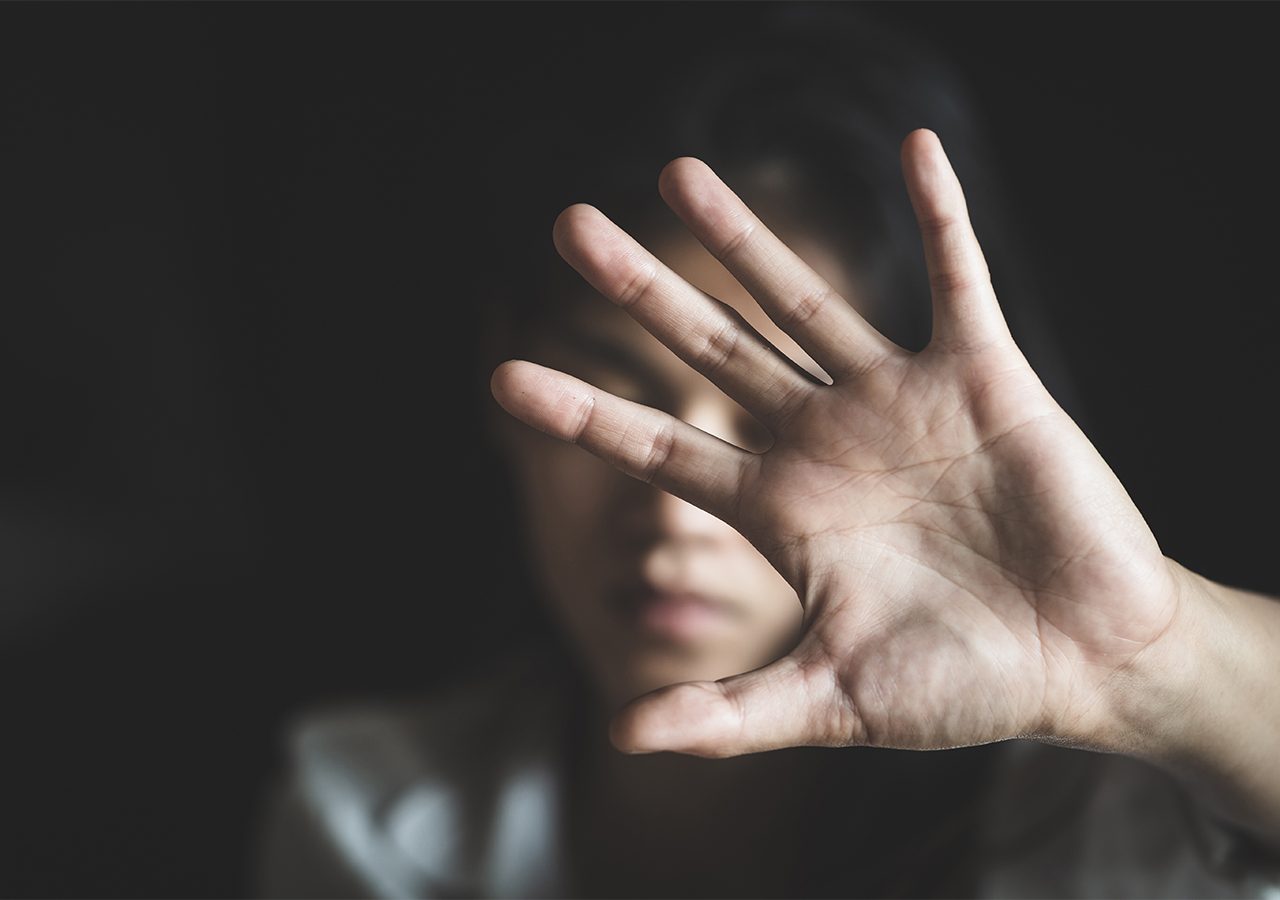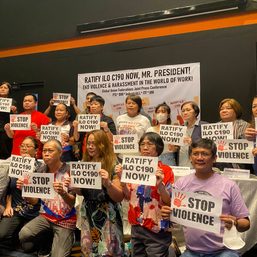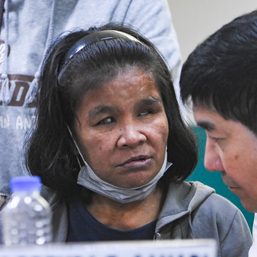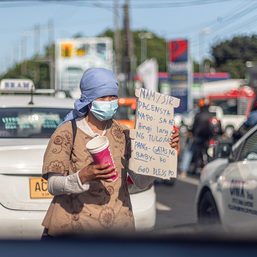SUMMARY
This is AI generated summarization, which may have errors. For context, always refer to the full article.

Content warning: This piece discusses rape and sexual violence.
MANILA, Philippines – The Philippines has various laws in place that are meant to protect women against rape and exact justice.
Rape occurs when one person subjects another to sex without the latter’s consent.
Traditional ideas of rape, such as how men are always presumed to be the perpetrators, or how there must be some kind of physical restraint, also hinder some women from accessing justice when they survive such a crime.
Here’s a look at the concepts of rape, consent, and current Philippine anti-rape laws.
What is rape?
Republic Act No. 11648, or the revised Anti-Rape Law, says rape is committed “by a person who shall have carnal knowledge of another person” under any of these circumstances:
- Force, threat, or intimidation
- When the victim is deprived of reason or otherwise unconscious
- Use of fraudulent machination or grave abuse of authority
- When the victim is under 16 years old or is demented, even if none of the above circumstances are present
- The exception here is if the two parties’ age difference is not more than three years, and the act was proven to be consensual, non-abusive, and non-exploitative.
- This exception does not apply if the victim is under 13.
“Carnal knowledge” refers to sexual intercourse. RA No. 11648, signed in 2022, amended the original Anti-Rape Law of 1997 which also contained amendments of the rape provisions in the Revised Penal Code (RPC), as well as Republic Act No. 7610, or the anti-child abuse law.
In the latest Anti-Rape Law, perpetrators can be any gender. From the previous definition of “a man who shall have carnal knowledge of a woman,” it was changed to “a person who shall have carnal knowledge of another person.”
The age of sexual consent was also raised from 12 to 16.
How prevalent is rape in the Philippines?
Despite anti-rape measures being in place for decades, thousands of rape cases are still being reported every year.
Data the Philippine National Police (PNP) presented to a forum on anti-rape laws in the University of the Philippines Law Center’s Institute of Human Rights on March 8 showed there were 9,387 cases of rape reported in 2023. This translates to almost 26 people being raped every day.
Between 2020 to 2023, the PNP reported the lowest number of rape cases in 2023. The peak during these years was in 2021, at 10,270 rape cases. Numbers dropped slightly to 10,236 in 2022.
In 2020, the height of COVID-19 pandemic lockdowns, there were 9,986 cases of rape. But this may not necessarily mean there was less prevalence – it could also mean that victims were not reporting it. (READ: During coronavirus lockdown: Abused women, children more vulnerable)
Focal point: Consent
The thousands of rape cases account only for the reported ones – the cases where survivors felt comfortable enough to seek help from authorities.
But because of the stigma that comes with being a rape survivor, and fear of not being believed, many women do not bother coming forward.
In the March 8 UP forum, the Philippine Commission on Women (PCW), together with nongovernment women’s organizations, said that laws must be amended to focus more on lack of consent as the key indicator of whether or not rape occurred.
The PCW proposed that the rape should be specified as “a sexual assault that violates a person’s rights to personal security and bodily integrity with the essential element of lack of consent.”
Consent, the PCW said, should be defined as the voluntary agreement to engage in sex, provided, verbatim, that:
- The person consenting fully understands what is being proposed
- Both parties enter into the relationship or proposal voluntarily
- Both parties are competent
The PCW also recommends further amending Article 266-A of the RPC, which provides the definition of rape in the Anti-Rape Law. This is their proposed definition:
“Rape is committed by a person against any person without their consent, whether or not injuries were suffered by:
- Inserting or causing the insertion of a person’s penis ino another person’s inner or outer vaginal labia, anal orifice, or mouth;
- Inserting or causing the insertion of a finger, instrument or object, into another person’s inner or outer vaginal labia or anal orifice;
- Placing or causing the placement of a person’s penis between, or rubbing or causing the rubbing thereof on, the breasts of another person; or
- Causing a person or persons to perform any of the above-mentioned acts even if the offender does not participate therein.”
In an April 2023 landmark ruling, amid questions on whether full penetration is needed to consummate rape, the Supreme Court clarified that the “mere introduction” of a penis to the cleft of a labia majora constitutes rape.
Senior Associate Justice Marvic Leonen dissented with this decision, saying it “downplayed” rape. Rape should be seen as a “consent-based offense,” he said.
Reexamining rape
The RPC also still has Article 266-C, which extinguishes the criminal action of rape if the parties involved get married. Various women’s groups have called to repeal this provision.
The PCW also proposes to amend Article 266-D to debunk the idea that physical resistance is needed to prove rape. While the current writing accepts as evidence “any physical overt act manifesting resistance against the act of rape in any degree,” the PCW said that an addition should be made to the line that “the absence or lack of physical overt act of resistance for the commission of rape shall not be construed as consent.”
In layman’s terms: Not resisting doesn’t mean consent.
The Anti-Rape Law, meanwhile, prescribes different penalties for rape through sexual intercourse and sexual assault – reclusion perpetua and prision mayor, respectively. Reclusion perpetua is a penalty of 20 to 40 years imprisonment, while prision mayor is 6 to 12 years.
“The disparity connotes that one form of rape is graver than of the other. Sexual assault and rape through sexual intercourse are both premised on the lack of consent by the victim to the sexual act or deed,” the PCW said.
Independent gender specialist Michael Pastor, who also presented in the March 8 forum, said that further improving anti-rape laws should forward an inclusion lens. These include dispelling the misconception that rape only concerns women – other sectors vulnerable to rape include persons with disabilities, gender minorities, and indigenous peoples.
From the ground up
For nongovernment organization Center for Women’s Resources (CWR), there is a need to improve protection and support for victim-survivors. Ways to do this include providing comprehensive legal assistance and support services to survivors, the institution of specialized courts that handle rape and sexual violence, and the implementation of measures to protect the privacy of survivors throughout legal proceedings.
Support systems like this call for the allocation of funding. CWR pointed to other mechanisms that can benefit from funding: training and capacity building for law enforcement, professionals, and frontline workers, and the implementation of prevention programs that aim to raise awareness about rape and sexual violence.
On prevention, CWR highlighted the need to engage communities to raise awareness, challenge stigma, and debunk misconceptions.
CWR also said that women in communities can also come together to emotionally support victim-survivors, and help identify unique risk factors to prevent sexual violence within their own communities. – Rappler.com
If you need to report a case of violence against a woman or child, contact the PNP’s Aleng Pulis Helpline:
- Globe: 0966 725 5961
- Smart: 0919 777 7377
- Facebook: https://facebook.com/wcpc.didmpnp
- Email: alengpuliswcpc.didm@pnp.gov.ph
Add a comment
How does this make you feel?
















![[OPINION] The myth of the individual narrative in the struggle against sexual violence](https://www.rappler.com/tachyon/2024/02/ispeak-struggle-for-safe-spaces-feb-7-2024.jpg?resize=257%2C257&crop=274px%2C0px%2C720px%2C720px)

![[OPINION] Data is crucial to preventing gender-based violence](https://www.rappler.com/tachyon/2023/11/TL-ogbv-nov-28-2023.jpg?resize=257%2C257&crop=271px%2C0px%2C720px%2C720px)


![[Free to Disagree] Arrest Quiboloy!](https://www.rappler.com/tachyon/2024/03/Free-to-disagree-arrest-quiboloy-March-11-2024-1.jpg?resize=257%2C257&crop_strategy=attention)






![[OPINION] Unpaid care work by women is a public concern](https://www.rappler.com/tachyon/2024/07/20240725-unpaid-care-work-public-concern.jpg?resize=257%2C257&crop_strategy=attention)
![[DECODED] The Philippines and Brazil have a lot in common. Online toxicity is one.](https://www.rappler.com/tachyon/2024/07/misogyny-tech-carousel-revised-decoded-july-2024.jpg?resize=257%2C257&crop_strategy=attention)


![[OPINION] Why women seek divorce](https://www.rappler.com/tachyon/2024/06/TL-women-seeking-divorce-june-14-2024.jpg?resize=257%2C257&crop_strategy=attention)
There are no comments yet. Add your comment to start the conversation.